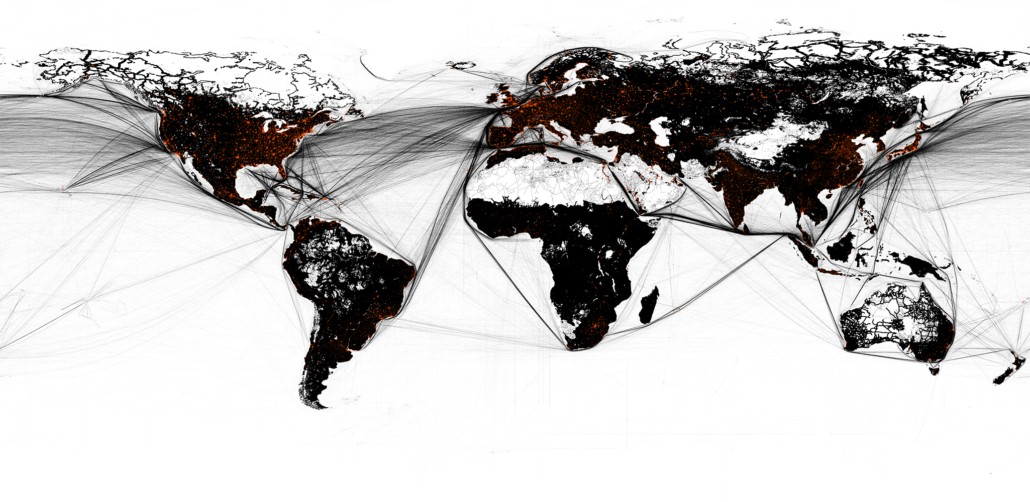From Hinterland to Hinterglobe: Planetary Urbanization and the Emergence of Operational Landscapes
How is the Global Land Squeeze linked to processes of planetary urbanization? While cities occupy no more than 4% of the Earth’s surface, urbanization activates nearly 70% of global land through its geometabolic interdependencies: operationalizing vast landscapes of primary production, circulation, and waste disposal that sustain urban life. This relationship has traditionally been conceptualized through the spatial category of the hinterland, referring to bounded, regional ecologies. Under planetary urbanization, however, this model collapses. I propose the concept of the hinterglobe to describe the multiscalar assemblages of operational landscapes that sustain urbanization. Hinterglobes are fragmented, specialized, and recursively linked through chains of extraction and ecological appropriation, from industrial agriculture to mining, logistics, and waste absorption. They materialize a planetary metabolism that enables urban concentration while externalizing ecological and social costs. By shifting the conceptual frame from hinterland to hinterglobe, this lecture underscores the need for new critical vocabularies to analyze how planetary urbanization reorganizes the Earth’s surface, and how its contradictions converge in operational landscapes.
https://www.tudelft.nl/en/staff/n.katsikis/
Lecture organized by Aarhus University’s research project “Infrastructural Cascades: A New Approach to Anthropocene Landscape Change”



